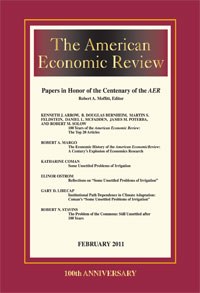
Koudijs, P. and Voth, \.J. (2016). Leverage and beliefs: Personal experience and risk-taking in margin lending American Economic Review, 106(11):3367--3400.
-
Affiliated author
-
Publication year2016
-
JournalAmerican Economic Review
What determines risk-bearing capacity and the amount of leverage in financial markets? Using unique archival data on collateralized lending, we show that personal experience can affect individual risk-taking and aggregate leverage. When an investor syndicate speculating in Amsterdam in 1772 went bankrupt, many lenders were exposed. In the end, none of them actually lost money. Nonetheless, only those at risk of losing money changed their behavior markedly; they lent with much higher haircuts. The rest continued largely as before. The differential change is remarkable since the distress was public knowledge. Overall leverage in the Amsterdam stock market declined as a result. (JEL D12, D14, D83, G11, G21).